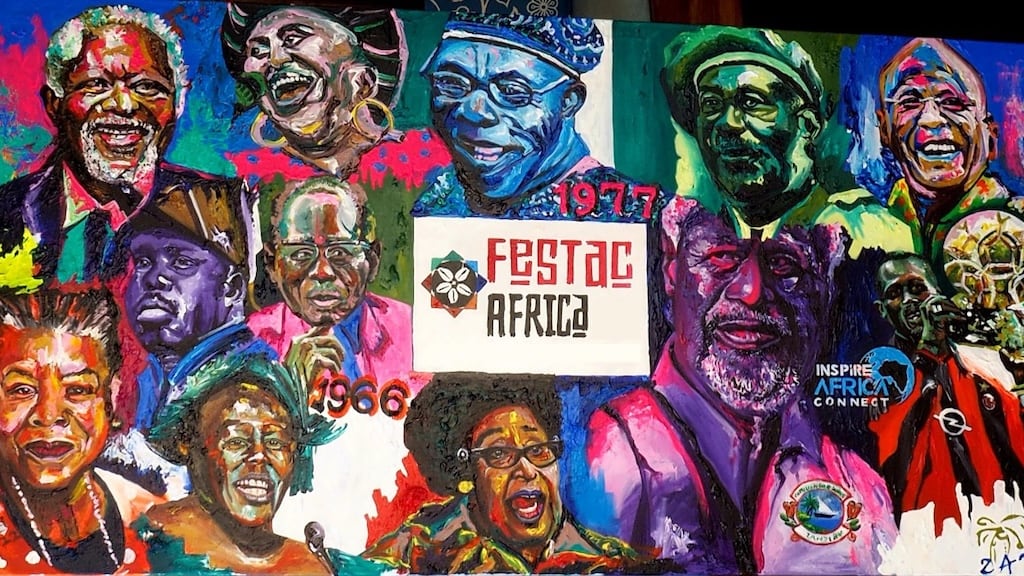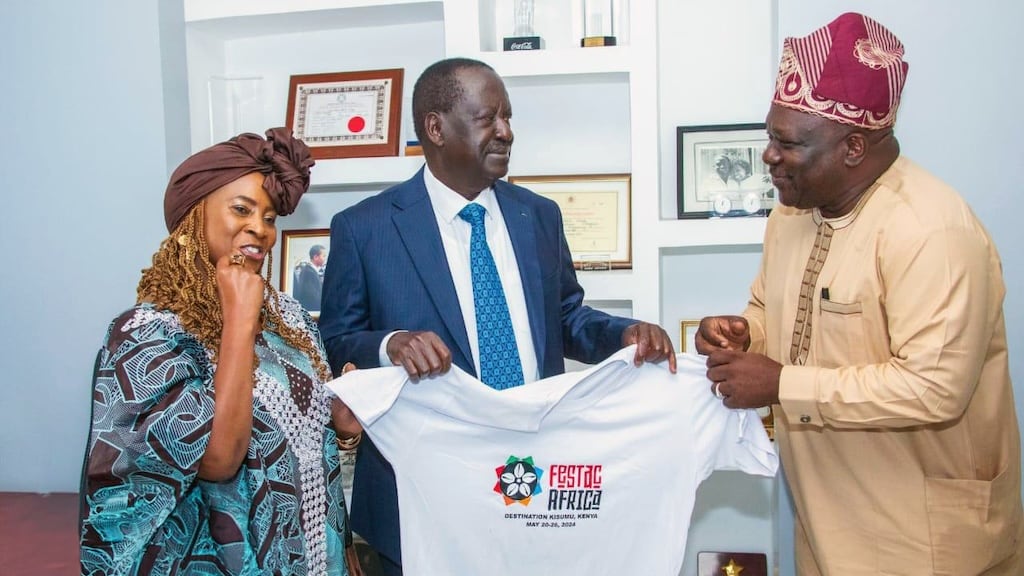A Pan-African Renaissance: The Rebirth of a Cultural Legacy
The FESTAC Africa Festival is not merely an event; it is the modern revival of a powerful Pan-African dream. Standing for the World Black and African Festival of Arts and Culture, FESTAC is a monumental gathering designed to unite Africa and its diaspora through shared heritage, artistic expression, and intellectual exchange.
Building on the colossal legacy of the 1977 festival in Nigeria, the contemporary version has been reborn as a “renaissance festival.” It aims to build tangible bridges between culture, health, commerce, and tourism, positioning them as the pillars of Africa's sustainable future. The FESTAC Africa Festival in Ghana represents the latest chapter in this story, inviting leaders, innovators, artists, and travelers to Accra to celebrate, collaborate, and define the continent's next era.


Historical Background
The roots of FESTAC lie deep in the Pan-Africanist and Négritude movements of the mid-20th century, championed by figures like Léopold Sédar Senghor and Aimé Césaire. The first festival, the World Festival of Black Arts, was held in Dakar, Senegal, in 1966, establishing a global platform for Black identity and creativity.
However, it was the second festival, FESTAC '77, that became a defining cultural moment for a generation. Hosted in Lagos, Nigeria, from January 15 to February 12, 1977, it remains one of the largest and most ambitious cultural events ever held on the continent. For one month, Lagos became the vibrant heart of the Black world, drawing over 16,000 participants—artists, musicians, scholars, writers, and performers—from 56 African nations and diaspora communities.
The Nigerian government invested heavily to ensure its success, constructing permanent infrastructure that endures today. This included the iconic National Arts Theatre in Iganmu and Festac Village, a massive housing estate built to accommodate the participants, which later became a major residential suburb of Lagos.
The official emblem of FESTAC '77 was a replica of the Benin ivory mask of Queen Idia, a symbol of African royalty and heritage. The festival was a spectacular showcase of over 50 plays, 150 music concerts, 80 film screenings, and 200 poetry readings that celebrated the diversity of Black civilizations. It was a profound statement of cultural decolonization, identity, and unity.
After a long dormancy, the festival was revived in 2022 in Zanzibar, followed by editions in Arusha (2023) and Kisumu (2024). This modern “FESTAC Africa Renaissance” keeps the original spirit of unity alive while adapting a new focus—using culture as a driver for sustainable development and global collaboration.
Typical Activities
The modern FESTAC Africa Festival is a multifaceted event blending high-level intellectual discourse with vibrant public celebration. The top activities during FESTAC Africa Festival are designed to foster collaboration across sectors, moving beyond art for art's sake to art as a catalyst for progress.
The 2025 edition in Accra, Ghana, features:
- Summits and Conferences: Health and Trade Summits, Climate Change panels, and Women Leadership forums where policymakers and entrepreneurs shape Pan-African strategies.
- Cultural Showcases: From Afro-Fusion Fashion Shows and live performances to Exhibitors Hubs that highlight crafts, technology, and design.
- Impact Initiatives: Tree planting, medical outreach, and the Africa Gala Awards recognizing innovators and cultural icons.
- Film and Literature Retreats: Spaces for African filmmakers, poets, and authors to share and collaborate.
- Cross-Border Carnival: A traveling cultural procession linking African nations in unity before converging in Accra.
Traditional Customs
At its heart, FESTAC celebrates traditional customs in Ghana and across Africa. The event showcases both ancient and modern expressions of identity:
- Music and Dance: Expect a blend of Adowa, Kpanlogo, and Afrobeats performances alongside pan-African drum ensembles.
- Cuisine: From Ghana's Waakye and Banku to East African Nyama Choma and Moroccan tagines, the festival's food village is a culinary expedition across the continent.
- Attire and Fashion: Kente, Aso-Oke, Ankara, and innovative Afro-fusion designs light up the festival grounds, creating a moving gallery of African heritage.
- Intellectual Traditions: Echoing the 1977 colloquiums, modern panels continue the legacy of Pan-African discourse on culture, education, and economics.
What to Expect
Venue: The 2025 edition takes place at the Accra International Conference Centre (AICC), near landmarks like Black Star Square and the Parliament of Ghana.
Weather: Warm and humid in September, with short tropical rains—ideal for outdoor festivities.
Transport: Just 15 minutes from Kotoka International Airport, accessible by taxi or ride-hailing services.
Accommodation: Stay in Osu, Cantonments, or Labone for proximity to the venue and great dining options—book early as rooms fill fast.
Etiquette: Business casual works for summits, while vibrant African attire is encouraged for galas and performances.
Insider Tips:
- Network actively—FESTAC is a magnet for creatives and entrepreneurs.
- Split your time between summits, exhibitions, and performances.
- Explore Accra's nearby attractions like Makola Market and Kwame Nkrumah Mausoleum for a deeper cultural dive.


Conclusion
The FESTAC Africa Festival is more than a celebration—it's a living testament to Pan-African unity and creativity. Continuing the monumental legacy of FESTAC '77, it blends trade, policy, and culture into one vibrant showcase of African excellence.
By attending, visitors not only experience an extraordinary cultural event but also join a movement shaping the continent's future. For details and registration, visit the official FESTAC Africa website.